wikiHow is a “wiki,” similar to Wikipedia, which means that many of our articles are co-written by multiple authors. To create this article, volunteer authors worked to edit and improve it over time.
There are 10 references cited in this article, which can be found at the bottom of the page.
wikiHow marks an article as reader-approved once it receives enough positive feedback. This article has 11 testimonials from our readers, earning it our reader-approved status.
This article has been viewed 79,648 times.
Learn more...
Fasting can be a powerful spiritual exercise, especially when done hand-in-hand with dedicated praying. While fasting is, perhaps, most notable as a Christian practice, it is not exclusive to Christianity—persons of any faith can fast and pray as they feel called. Continue reading for a few basic principles, instructions, and tips concerning how to fast and pray effectively.
Steps
Prayer and Preparation Before Fasting
-
1Pray for guidance on which type of fast to perform. A traditional fast involves fasting from food, but you can also fast from media or different habits.
- An absolute fast or water fast requires you to abstain from all solids and liquids aside from water.
- A liquid fast requires you to abstain from all solid food, but you can still drink any liquid you want.
- A partial fast requires you to abstain from certain foods or from all foods during a portion of the day. This fast is especially common for Catholics during Lent.
- A traditional Lenten fast is a partial fast. You should abstain from meat on Fridays and Ash Wednesday. On Ash Wednesday and Good Friday, you should limit yourself to one full meal and two smaller meals that should not be large enough to equal the size of another standard meal. All drinks are acceptable.
- A bread and water fast permits you to consume bread and water, but nothing more.
- A media fast requires you to abstain from media. This can include all media, or it can include a certain form of media, such as television or the Internet.
- A habit fast requires you to abstain from a certain type of behavior. This could be anything from raising your voice to playing cards. This is another fast commonly practiced during Lent.
-
2Ask for direction about how long to fast. You can fast anywhere from one day to several weeks. Settle on a length of time that is both healthy and spiritually challenging.[1]
- If you have never fasted before, it is recommended that you fast for no longer than 24 to 36 hours.
- Do not fast from fluids for more than three days.
- Consider easing yourself into an extended absolute fast. Begin by fasting from one meal for several days. After your body has adjusted, fast from the next meal, and finally, fast from all meals.
Advertisement -
3Determine why you feel called to fast. In your prayers, ask God for guidance on what the objective of your fast should be. This objective will provide your prayers with focus and direction as you fast.
- Spiritual renewal is a common reason for fasting, but you can also fast if you desire guidance, patience, or healing.
- You can also fast for a specific cause that extends beyond your personal spiritual needs. For instance, if a natural disaster strikes, you could fast and pray for those impacted by the disaster.
- Fasting can be done as an expression of gratitude, as well.
-
4Seek forgiveness. Repentance is a key element to successful fasting and successful praying.[2]
- With God's direction, make a list of your sins. The list should be as comprehensive as possible.
- Confess these sins to God, seeking and accepting forgiveness.
- You should also seek forgiveness from those whom you have wronged and express willingness to forgive those who have wronged you.
- Ask God for guidance on how to make amends for your wrongdoings.
-
5Pray about who to tell. In some way, seeking public approval defeats the point of a fast. That said, you can tell those whom you believe will provide you with spiritual support during your fast.[3]
- Pastors, significant others, and spiritual partners are usually good options.
- Ask God for direction on whom to go to for support.
-
6Accept guidance on physical preparation. In addition to preparing spiritually, you also need to prepare physically.[4]
- Start slow, especially if you are new to fasting. Eat small meals before your fast to prepare your body.
- Avoid caffeine a full 24 hours in advance, as caffeine withdrawal can cause and intensify headaches.
- Slowly remove sugar from your diet a week or so before an extended fast, since people who consume large amounts of sugar usually find fasting difficult.
- Consider eating a strict diet of raw foods several days before an extended fast.
Prayer During Fasting
-
1Focus on the reason for your fast. While you can pray for anything during a fast, determining an objective for your fast beforehand provides you with a focal point to center the majority of your prayers around.[5]
- Be open to a change in focus. It is possible that you will feel called to fast for one reason, only to discover that God wants you to meditate over another objective, instead.
-
2Meditate over Scripture. You can follow a Bible study guide or turn through the pages of your Bible in whatever way you feel called to do. Take notes on what you read and pray for a fuller understanding of scriptural lessons.
- Note that if you are not a Christian, you should meditate over whichever holy text lies at the heart of your faith.
- You can also meditate over spiritual books that you are reading during the time of your fast.
-
3Pray personal prayers and scripted prayers. The majority of your prayers will likely be impromptu, personal prayers in your own words. When you are lost for words, however, consider switching to a scripted prayer in order to guide your communication with God.[6]
- One of the most common scripted prayers is the “Lord's Prayer,” also called the “Our Father.” Any scripted prayer can be used, however, especially if it calls to you.
-
4Use prayer aides. The use of prayer aides can be controversial for some faiths, but they are acceptable for many others.[7]
- Common prayer aides associated with Catholicism include rosaries, saint medals, and crucifixes. For non-Catholic denominations of Christianity, you could consider listening to instrumental versions of common hymns or using non-rosary prayer beads.
-
5Pray with others. While most of your prayers will likely be done on a personal, individual level, you can consider praying with others during your fast, as well. Praying in a group is thought to petition God to be among you, making group prayer a powerful tool.
- You can pray aloud or silently. If praying aloud, however, avoid comparing your own prayers with those of the people around you.
- Good prayer partners during a fast usually include the people you have informed about your fast and anyone who is fasting alongside you.
-
6Find a quiet spot. You can pray at any time of the day, regardless of where you are or what is happening around you. During a time of focused prayer like a fast, though, it is important that you find silent time to spend with God in a one-on-one manner.
- You could use a quiet spot indoors. A bedroom is often a good place, but any quiet corner of your home or office is appropriate. You can even pray when you find yourself alone in your car.
- Alternatively, you can pray outdoors, as well. A quiet spot in the woods allows you to spend time in prayer with God while also admiring God's creation.
-
7Balance scheduled prayer and spontaneous prayer. Making a prayer schedule can be useful, especially for extended fasts, but you should not obey your schedule so strictly that you prevent yourself from praying spontaneously as the Spirit calls you.
- Pray during your newly-created free time. The time you would usually spend on eating, watching television, or performing a habit you decided to fast from can be spent in prayer.
- Make a point of starting and ending your day with a time of prayer.
Additional Fasting Procedures
-
1Mind your personal hygiene. During an extended, absolute fast, your body will excrete a large amount of toxic waste during the first three days.[8]
- Shower or bathe every day, especially during these first three days.
- Brush your teeth more than usual during these first three days to ward off foul breath.
-
2Do not adopt a look of suffering. Fasting is a time of close, personal communion between you and God. By appearing to others as though you are suffering, you invite pity and admiration, which could inflate your pride and make it difficult to approach God in a state of humility.
-
3Continue to drink fluids. You should not go more than three days without water.[9]
- You can abstain from other fluids, such as juice or milk, but you should continue to drink water during the majority of an extended fast. Otherwise, you run the risk of causing serious dehydration, which is likely to result in severe health problems.
-
4Check your emotions. People who skip a meal tend to feel grumpy. As such, it is to be expected that skipping many meals will make you even grumpier. Mind your emotional state, and if you feel ready to snap at the next person who approaches you, find a solitary space to pray and reflect instead.
-
5Limit your activity. Casual walks are acceptable and encouraged, but fasting drains you of a great deal of energy, so you need to rest as often as you can.
- To the same end, you should also avoid any vigorous exercise.
-
6Avoid drugs. Medications, herbal drugs, and homeopathic remedies can cause complications during your fast, making side effects like nausea, restlessness, fatigue, dizziness, and headaches even worse.[10]
- Note, however, that you should not stop any prescription medications without your physician's approval and supervision.
Post-Fasting Prayer and Additional Procedures
-
1Reflect on the experience and ask God for guidance. You may have learned a lot during your fast, but there may yet be other lessons you can take away from your fast that you can only discover after it ends. Ask God to guide you as you reflect and as you move forward so that you can make the most of your fasting experience.
- If you committed to a partial fast, media fast, or habit fast, focus on your successes rather than you failures. Many people falter on these fasts at some point, especially if they are unaccustomed to fasting. Instead of deeming the experience to be a failure due to your weak points, focus on the lessons learned and spiritual strength gained during your strong points.
- Express gratitude. Above all else, reflect an move forward in a spirit of thanksgiving. Give thanks to God for the completion of a successful fast and for any spiritual direction you received during your time of fasting.
-
2Return to eating as normal after a brief fast. If you only fasted for 24 hours, you can return to a normal eating schedule the following day.
- Similarly, if you only fasted from a certain type of food or from a single meal, you can safely reintroduce the food or meal into your diet without taking extra precautions.
-
3Break a water fast with fruit. If you fasted from all food and liquid aside from water, you should gradually reintroduce food to your diet with solid fruit.[11]
- Watermelon and other fruits that have a high water content are best.
- You can also drink fruit juices to re-accustom your body to food matter other than plain water.
-
4Slowly introduce vegetables when breaking a liquid fast. If you continued drinking fruit and vegetable juices during your fast, gradually break your fast with a slow, steady intake of vegetables.[12]
- On the first day, eat nothing more than a raw salad.
- For the second day, add a baked or boiled potato to your diet. Do not use butter or seasoning.
- During the third day, add a steamed vegetable to your diet. Again, do not use butter or seasoning.
- From the fourth day onward, you can reintroduce your normal diet in a way that feels convenient and comfortable for your body.
-
5Eat snacks to return to regular eating. As you return to regular eating, consume several small snacks or meals for the first few days instead of immediately jumping to large meals.
Community Q&A
-
QuestionCan a Christian fast throughout a year?
 Community AnswerFasting is a personal decision for every Christian to make, and if they feel the need to fast for a year, then that is by all means fine. Most Christians fast during the period of Lent, for 40 days, symbolising the 40 days that Jesus spent in the desert, being tempted by the devil. However, fasting is completely between you and God, and doesn't necessarily need to be fasting food wise.
Community AnswerFasting is a personal decision for every Christian to make, and if they feel the need to fast for a year, then that is by all means fine. Most Christians fast during the period of Lent, for 40 days, symbolising the 40 days that Jesus spent in the desert, being tempted by the devil. However, fasting is completely between you and God, and doesn't necessarily need to be fasting food wise. -
QuestionHow long should I fast for?
 Community AnswerFor however long you feel God wants you to. Some people fast for a day, others for a week, some for 40 days..
Community AnswerFor however long you feel God wants you to. Some people fast for a day, others for a week, some for 40 days.. -
QuestionIf I fast and drink only water, can I eat at night and then start fasting again in the morning?
 Melody Taylor SuttlesCommunity AnswerFasting is a choice we make, and no longer a commandment. There are no rules. God looks at the heart, not the works. Fast whatever way is true and genuine to you. He sees it. Some fast one meal a day. Some fast sweets or television. It can be 3 days or 30. I have fasted many times, though I am not commanded to. I do it to weaken my flesh so my spirit can gain some needed strength, like a spiritual tune up.
Melody Taylor SuttlesCommunity AnswerFasting is a choice we make, and no longer a commandment. There are no rules. God looks at the heart, not the works. Fast whatever way is true and genuine to you. He sees it. Some fast one meal a day. Some fast sweets or television. It can be 3 days or 30. I have fasted many times, though I am not commanded to. I do it to weaken my flesh so my spirit can gain some needed strength, like a spiritual tune up.
Warnings
- There are some conditions that will make fasting unsafe and unwise. Do not fast without your doctor's permission if you are emaciated, prone to eating disorders or behavioral disorders, suffer from anemia, suffer from blood sugar problems like diabetes or hyperglycemia, or are pregnant or nursing. You should also avoid fasting without supervision if you have tumors, bleeding ulcers, cancer, blood diseases, heart diseases, or problems with major organs like your lungs, liver, and kidneys.⧼thumbs_response⧽
Things You'll Need
- Bible
- Notebook
- Pen or pencil
- Water
References
- ↑ https://culturalawareness.com/fasting-around-the-world/
- ↑ http://www.cru.org/training-and-growth/devotional-life/7-steps-to-fasting/02-how-to-begin-your-fast.htm
- ↑ http://www.whatchristianswanttoknow.com/10-fasting-tips-a-christian-guide/
- ↑ http://english.alarabiya.net/en/variety/2015/06/13/Ready-for-Ramadan-Top-tips-to-prepare-your-body-for-fasting.html
- ↑ https://www.beliefnet.com/faiths/islam/2009/08/ten-prayers-for-ramadan.aspx
- ↑ https://www.beliefnet.com/faiths/islam/2009/08/ten-prayers-for-ramadan.aspx
- ↑ https://www.bbc.co.uk/religion/galleries/prayeraids/
- ↑ https://goaskalice.columbia.edu/answered-questions/can-fasting-help-purge-body-toxins
- ↑ https://www.nutrition.org.uk/healthyliving/seasons/ramadan.html
About This Article
If you want to pray during your fast, try to find a quiet place to focus yourself, like your bedroom, home office, or outside while admiring nature. Try focusing your prayers around sections from spiritual books or holy texts that you're reading and asking for guidance in fully understanding them. You can also spend some of your prayer time contemplating on the reasons for your fast and how they may be evolving. While you'll likely spend most of your prayer time alone, you can also join a group to have a powerful, communal experience. To learn how to use prayer aides while fasting, keep reading!
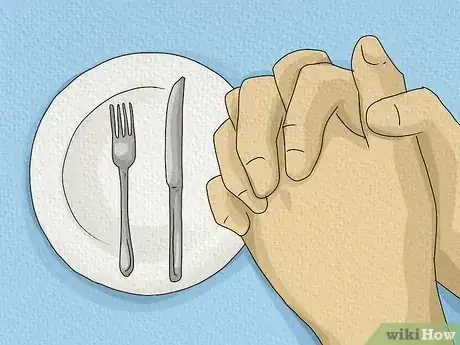
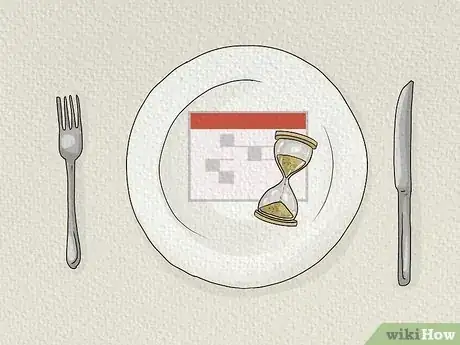




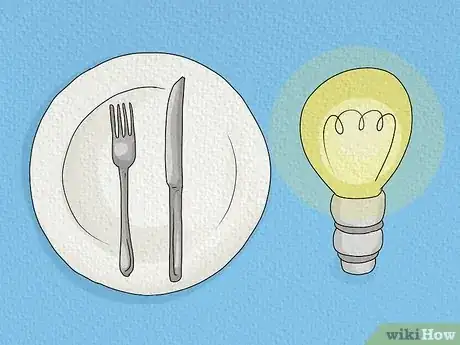


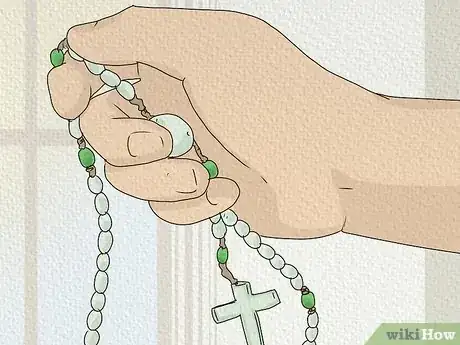


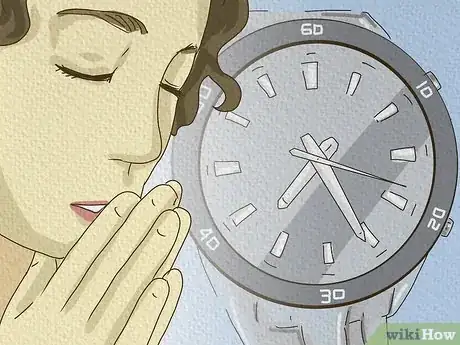







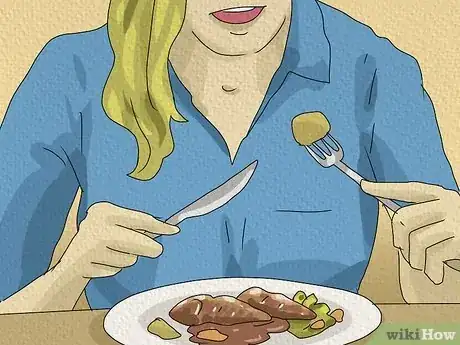

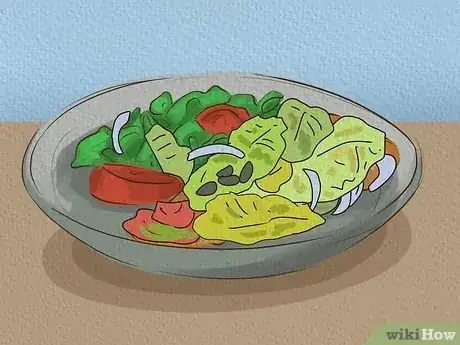
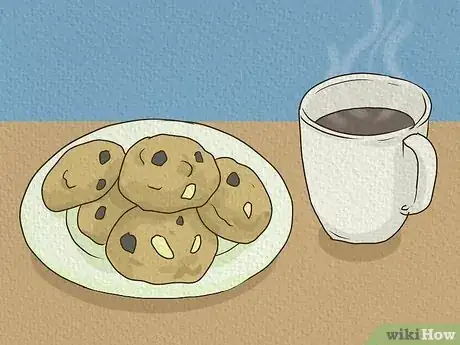
-Step-8-Version-3.webp)

-Step-10.webp)



















-Step-8-Version-3.webp)

-Step-10.webp)



































